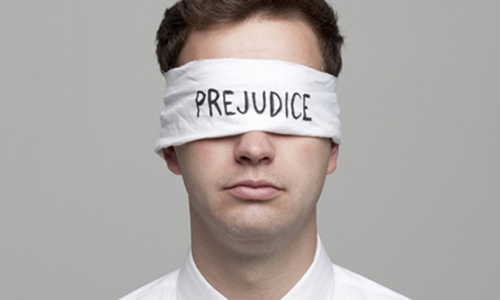Why both police and protesters attack Western media?
By Zhang Yiwu Source:Global Times Published: 2020/6/11 22:38:40

Photo: VCG
Protests triggered by the death of George Floyd continue across the US. Mainstream US media has not escaped their ire. Some news outlets have been attacked by both the police and the protesters. The phenomenon has caught observers' attention.
CNN headquarters in Atlanta, Georgia, was vandalized by demonstrators on May 29. Almost at the same time, the media outlet's reporters were arrested by the police while broadcasting live on television during the violent protests in Minneapolis.
In the West, the mainstream media is regarded as the "Fourth Estate." Journalists stand on the front lines to report the truth. Although they used to complain about being unfairly treated by parties involved, it's rare that journalists were rejected by both sides of an incident - as is the case with current US protests.
The New York Times op-ed page recently published an article by Republican Senator Tom Cotton calling for a military crackdown on riots, which is a typical US rightist view. It immediately caused an uproar both inside and outside the newspaper, leading to the resignation of opinion editor James Bennet. It also sparked discussions within Western society over what objectivity is and what kind of values the Western mainstream media should uphold.
The abovementioned incidents are a reflection of the new situation Western mainstream media outlets are being confronted with under the challenges of social media. They also mirror the dramatic changes in Western society.
First of all, new media and social media have had a significant impact on the influence of traditional media, including Western mainstream media. During the 2016 presidential election campaign, almost all US mainstream media outlets showed support for Democratic candidate Hillary Clinton. However, Donald Trump finally won thanks to his efforts made on social media. Since Trump assumed office, he has been critical of mainstream media outlets. He repeatedly criticized them of creating "fake news" while his supporters are also hostile to these media outlets.
In the protests caused by Floyd's death, there have been tensions between police and US mainstream media. Demonstrators also think the media failed to objectively reflect their demands. As a result, both police and protesters attempt to bypass the normal news organizations and speak directly on social media. It's easier for people with similar opinions to gather on social media and strengthen the views they hold. This has dealt a heavy blow to the influence of institutional media.
Second, people prefer mainstream media when they want to get reliable information and analysis. This hasn't changed, especially for middle-class citizens. Mainstream media thus cannot be neglected, and we can see this from Trump's attacks on them. But as these media outlets usually take sides with Western liberal values, some people feel setbacks as their opinions are downplayed by the news organizations.
Third, mainstream Western media outlets are becoming increasingly ideological. They are firmly sticking to their own values and resolute in blocking different points of views. When facing disputes, some mainstream media outlets, which claim to be objective, always represent a certain group of people who share like-minded opinions. For example, many media outlets are extremely biased in terms of China-related issues. They are thus engaged in disinformation against China.
As societies become further polarized with more internal confrontations, some mainstream media outlets are getting involved in conflicts with investigative reporters turning into interventional journalists who stick to their own values and appeals and cannot make objective reports or comments that represent different voices.
The challenges Western media faces come from long-existing problems. Those media outlets have not fully adapted to the great changes of media in the 21st century. This is worthy of our attention.
The author is a professor at Peking University. opinion@globaltimes.com.cn
Posted in: VIEWPOINT,OPINION